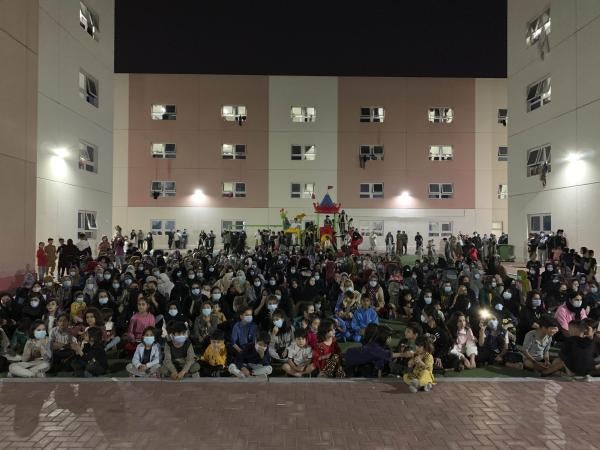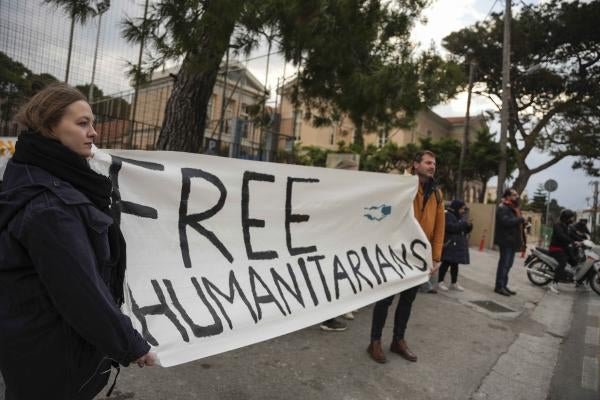In 2021, as the Taliban were expanding control of Afghanistan – eventually taking over Kabul in August – Afghans with connections to the old government or its allies were forced to flee. Tens of thousands were evacuated to other countries.
Some managed to escape with their lives, yet they are still not free.
In fact, more than two thousand of them remain stuck in a bizarre and abusive limbo in the United Arab Emirates (UAE).
The government of the UAE flew thousands of Afghans to Abu Dhabi in 2021 and transferred them to the “Emirates Humanitarian City” and another housing facility, pending onward movement. Many were later resettled in the US, Canada, and elsewhere, but between 2,400 and 2,700 Afghans remain there.
And, paging Mr. Orwell, a “humanitarian city” is not what it sounds like. It’s essentially a prison.
Afghan asylum seekers are locked up in miserable conditions. There’s overcrowding, decaying infrastructure, and insect infestations.
Detainees include children who escaped Afghanistan with their parents. Education services are poor.
Perhaps worst of all, people are trapped in a kind of limbo. They have no idea when their suffering might end.
They shouldn’t be locked up at all. They should be in a process that determines their refugee status. They should have safe and legal pathways for onward movement. No such luck.
Instead, they find it difficult, if not impossible, to get legal counsel and have no possibility of progress on their cases.
In such ambiguity and hopelessness, it’s no surprise adults and children are increasingly suffering from depression. But, of course, there’s no mental health support in the “humanitarian city.”
It doesn’t have to be this way.
Human Rights Watch has written to both the UAE and the US about this situation. US authorities responded this week saying, “the U.S. commitment to relocate and resettle all eligible Afghans is an enduring one. This includes those eligible Afghans located at the Emirates Humanitarian City (EHC) in the UAE.”
If we could get the UAE authorities to respond with similar goodwill, we might be getting somewhere.
More importantly, the Afghans might finally get somewhere – and be able to restart their lives.













